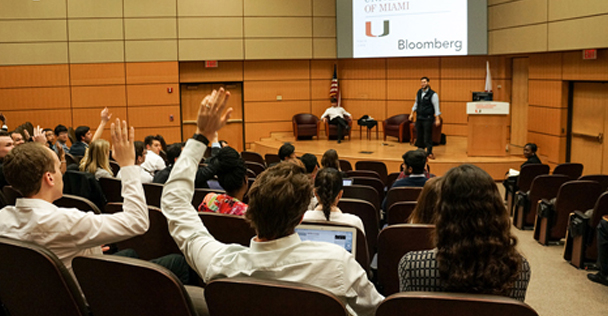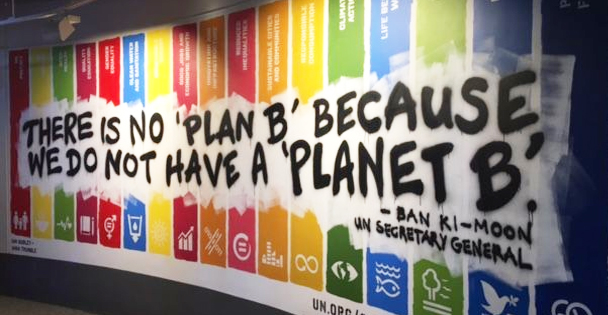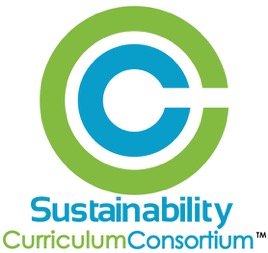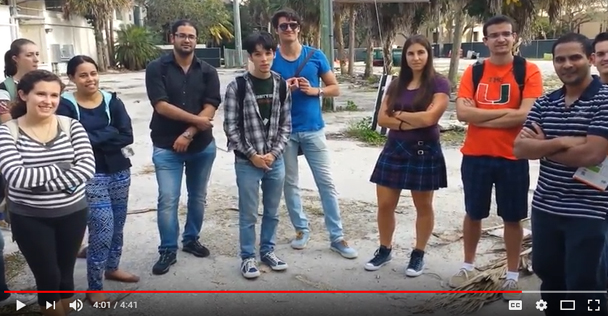Invite Green U for a 20 min presentation in your class, and get your students involved in the multiple sustainability projects our campus offer: from our sustainable food initiatives, our LEED certified buildings, to our various renewable energy projects, our tree canopy or our waste minimization strategy, our multidisciplinary approach is fit for any class. Contact greenu@miami.edu to schedule a presentation in your class (available on our 3 campuses).

****
How Did I Green My Syllabus?
Over the last few years, the University has increased its offerings of graduate and undergraduate programs focused on sustainable development. We invite you to join a group of colleagues from various UM departments as they share their personal journey in Academia, and how they decided to integrate sustainability in their syllabus. Join our panelists, Prof. David Kelly (Miami Herbert Business School), Prof. Lokesh Ramamoorthi (Electrical and Computer Engineering), Prof. Erin McNary (Sports Administration), and Prof. Justin Stoler (Geography).



















